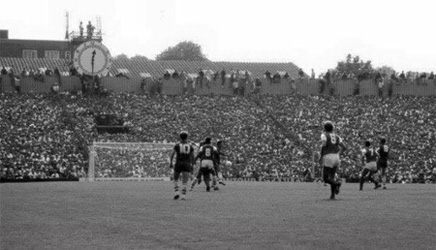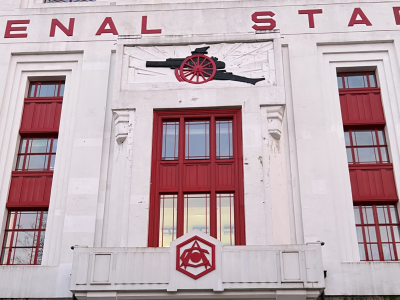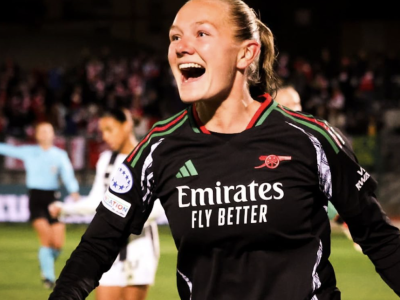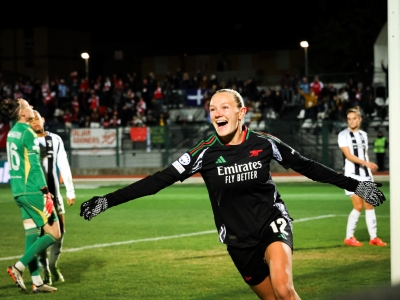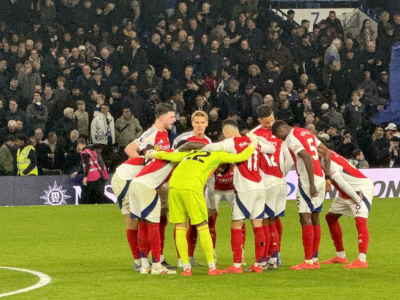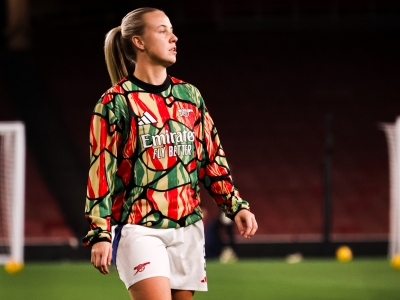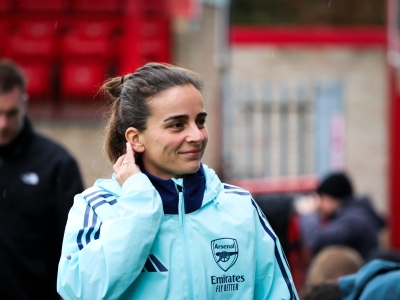Chelsea’s first away trip to Woolwich Arsenal occurred in March 1908, which resulted in a 0-0 draw. Their second visit thirteen months on saw a repeat score line. On their third visit Arsenal scored their first home victory over Chelsea with a 3-2 win in September 1909. Chelsea’s first visit to Highbury in December 1919 resulted in a 1-1 draw with Henry White on the score sheet and Chelsea’s first goal scorer at Highbury was a man by the name of Jack Cock (not a humorous typo error). In fact, Cock was a distinguished soldier who won medals for bravery in the First World War, as well as being a bit of a music hall star with a tenor singing voice and appeared in two football related feature films – a silent film called ‘The Winning Goal’ in 1920 and a 1930 film called ‘The Great Game’ which was shot at Stamford Bridge and included a first credited film appearance of Rex Harrison.
Cock also had two brothers – Herbert Cock who played for Brentford and Don Cock, who briefly played for Arsenal in 1925 signed by Leslie Knighton but discarded by new manager Herbert Chapman, who was seemingly not too keen on Cock and sold him to Clapton Orient. By the time of Herbert Chapman’s appointment as Arsenal’s manager in 1925, Chelsea had only managed one away win over Arsenal. Arsenal first successful FA Cup run started with a third round win over Chelsea at Highbury. The Gunners won 2-0 with goals from Cliff Bastin and Jack Lambert. Chelsea failed to record a win over Arsenal at Highbury throughout the 1930s, with Arsenal scoring a 4-1 win in December 1932 with two goals from Cliff Bastin, Ernest Coleman and Joe Hulme. Arsenal also won by the same score line exactly four years on at Highbury with two goals from Alf Kirchen, Ted Drake and Robert Davidson.
In February 1938, on their way to the League Championship that season Arsenal’s 2-0 win over Chelsea at Highbury would be captured for posterity by the newsreel companies. Goals from Ted Drake and Mal Griffiths gave Arsenal both points. After the Second World War, the two sides met in a marathon FA Cup third round tie in 1947. The first match at Stamford Bridge ended in a 1-1 draw. The replay at Highbury, caught here by newsreel footage, also ended with the same result with Ronnie Rooke on the scoresheet for Arsenal and future Gunner Tommy Lawton equalising for Chelsea. Lawton however would be the difference in the second replay at White Hart Lane as Chelsea inflicted a 0-2 defeat on neutral territory.
In March 1947, Chelsea would finally score their first win at Highbury with a 1-2 defeat for the Gunners. Like London buses, Chelsea waited twenty eight years for a win at Highbury and then four turned up at one. In March 1948, Chelsea inflicted a 0-2 defeat on title chasing Arsenal with goals from Roy Bentley and Bobby Campbell (not to be confused with the man who coached both Arsenal in the 1970s and Chelsea in the 1980s). In April 1949 Chelsea achieved a hat-trick of wins with goals from Hugh Billington and Leonard Goulden and Dennis Compton on target for Arsenal. Their fourth straight win came the following August, where Arsenal suffered a 2-3 defeat with goals from Roy Bentley and Hugh Billington, while Peter Goring scored two goals for the Gunners.
While Arsenal failed to secure a home win over Chelsea during the 1940s, the Blues were unable to win at Highbury during the 1950s. Arsenal’s first post-war home win over Chelsea came in August 1951 with goals from Cliff Holton and Doug Lishman. The most goal packed fixture between the two sides during this decade came in March 1958 when Arsenal defeated the Pensioners 5-4 with goals from Jimmy Bloomfield, Danny Clapton and a hat-trick for David Herd. Also grabbing two goals for Chelsea was eighteen year old Jimmy Greaves. On entering the 1960s however, the balance swung back in the direction of the blues who inflicted two back to back 1-4 defeats on the Gunners at Highbury in April 1960 and again six months later.
The run actually stretched to five straight wins for Chelsea at Highbury, with the blues not failing to score less than three on each occasion. This includes a 2-4 defeat in March 1964, where Chelsea’s Bobby Tambling scored all four goals. Six months later, Chelsea inflicted a 1-3 defeat on Arsenal where Tambling was on the scoresheet again along with Terry Venables and Bert Murray for the Blues while David Court scored Arsenal’s goal. Chelsea repeated the same score line at Highbury exactly twelve months on, with future Gunner George Graham on the scoresheet for the Blues. That same season, Chelsea knocked the reigning FA Cup holders Liverpool out in the third round with a 2-1 win at Anfield. In August 1966, Chelsea achieved a 6-2 victory away at Aston Villa which was captured by the Match of the Day cameras.
Later that same season however, Arsenal however ended their Highbury losing streak against Chelsea in February 1967 with a 2-1 win secured by goals from George Armstrong and George Graham, with Bobby Tambling on target for Chelsea. This win however only briefly interrupted a run of defeat for Arsenal at home to Chelsea, as in November 1968 Chelsea took both points courtesy of a goal from Peter Houseman. The Battersea born Chelsea winger would later find fame through scoring Chelsea’s first goal in the 1970 FA Cup Final, but tragically would die in a road traffic accident seven years later at the age of just thirty one. The accident also killed another couple that were friends of the Housemans and resulted in six children orphaned as a result.
Later on in the 1968/69 season, Chelsea would play reigning European Champions Man United at Stamford Bridge and achieve a 3-2 win. The following season brought Chelsea’s famous FA Cup win over Leeds, the Blues however would lose 2-5 at home to their old rivals in the North in early January. One week later however Chelsea would bounce back by inflicting a 0-3 defeat on Arsenal at Highbury with goals from former Gunner Tommy Baldwin, future Gunner John Hollins and Ian Hutchinson. Arsenal’s decade long losing streak against Chelsea however would finally be laid to rest on route to the Double in April 1971.
Arsenal took the points through two goals from Ray Kennedy, which gave Arsenal a 2-0 win. Also at the end of this footage on the Big Match is the campaign to write a Cup Final song for the Arsenal to the tune of Land of Hope and Glory. There were no decent entries from the general public, so the recently departed Jimmy Hill, then a pundit with ITV, wrote ‘Good Old Arsenal’ which became the Gunners Cup Final anthem and a top twenty hit in the UK Singles Chart. Arsenal’s first game of the 1971/72 season would be at home to Chelsea. Just prior to kick off at Highbury would be a trophy parade involving the League Championship, FA Cup and FA Youth Cup for Arsenal, manager of the year for Bertie Mee and Chelsea parading their European Cup Winners Cup trophy. In the event, Arsenal won 3-0 with goals from Ray Kennedy, Frank McLintock and John Radford.
The following season, in September of 1972 Chelsea’s visit to Highbury resulted in a 1-1 draw with the Blues taking the lead through a goal from Charlie Cooke, Arsenal equalising through an own goal from David Webb. Later on that season, the two sides would be embroiled in a classic FA Cup Quarter Final tie which ended all square at Stamford Bridge. The replay back at Highbury brought a huge crowd of 62,746, which saw Chelsea take the lead through a goal from Peter Houseman. Arsenal’s equaliser came as a result of George Armstrong being brought down within the box, however referee Norman Burtenshaw originally deemed it to be outside of the box.
For those who claim that arguing with the referee is pointless as he never changes his mind, this piece of footage stands in stark contrast as the pressure applied by the Arsenal players led to the referee to consult his linesman and rightly award a penalty (although this footage from the final whistle of ’71 Cup Final - which Burtenshaw also officiated - might suggest he had a bias in favour of North London’s finest). Arsenal sealed their passage to a third successive Semi-Final with a header from Ray Kennedy to give Arsenal a 2-1 victory. This however would be Arsenal’s last victory over Chelsea at Highbury before their drop to the second tier.
The following November Arsenal drew 0-0 with Chelsea in the League and on Boxing Day 1974 Chelsea inflicted a 1-2 defeat on Arsenal with Alan Ball on target for the Gunners and Chris Garland scoring twice for Chelsea. During Chelsea’s time in the second tier the two sides met at Highbury in the fourth round of the League Cup in October 1976 in front of a crowd of 52,285. Arsenal went through with a 2-1 victory through goals from Trevor Ross and Frank Stapleton and future Celtic manager (and not the Heavyweight Boxing Champion) David Hay on target for the Blues. By the end of that season Chelsea would secure promotion back to the top flight along with Wolves and Brian Clough’s Nottingham Forest, who they beat 2-1 at Stamford Bridge in April 1977.
The first meeting between Arsenal and Chelsea on the latter’s return to the top flight came on Boxing Day of 1977, which Arsenal won 3-0 with goals from David O’Leary, David Price and Graham Rix. Two weeks on however, the Blues knocked European Champions Liverpool out of the FA Cup in the third round with a 4-2 win at Stamford Bridge. A further fortnight on from that, Chelsea’s free scoring opening month of 1978 continued with a 5-3 win over Bobby Robson’s Ipswich at Stamford Bridge. Chelsea’s first season back in the top flight however finished with the Blues in sixteenth position. Chelsea fared even worse in 1978/79, finishing rock bottom of the old First Division, suffering a 1-5 hammering away at Ipswich in December.
In mid-April 1979, Arsenal hammered Chelsea 5-2 at Highbury, with goals from Alan Sunderland, David O’Leary, David Price and two goals for Frank Stapleton, with Tommy Langley and Clive Walker on target for Chelsea. This defeat put the Blues on the verge of relegation, which was confirmed with a defeat twelve days later away at Aston Villa (although this would be Arsenal’s last league win of the season, which shows the Gunners’ form going into the 1979 final which Terry Neill’s men came very close to blowing after being two goals up!). Although Stamford Bridge would play host to second tier football in 1980, the ground would be used as a location for filming an episode of Thames Television’s famed early eighties comedy’s drama ‘Minder’ titled ‘All About Scoring Innit?’ with Karl Howman of Brush Strokes and present day Eastenders fame as fictional mercenary footballer Danny Varrow (which shows that such concerns actually did pre-date Russian oligarchs and Sky Sports).
In the early eighties Chelsea would descend into a second tier mid-table outfit suffering a 0-1 defeat at home to Orient in 1980/81 which was captured by the Match of the Day cameras. One bright spot for the Blues would be the elimination of reigning European Champions Liverpool in the FA Cup fifth round in 1981/82 with a 2-0 win at Stamford Bridge. The following round brought an all-London Quarter Final tie against Cup holders Tottenham at Stamford Bridge, which led to a 2-3 defeat for Chelsea. The Blues however would finally return to the top tier after a six year gap in 1983/84, finishing as Champions of the second tier.
Their first game back in the big time came at Highbury in August 1984 and due to Chelsea fans’ fearsome reputation at the time the game kicked off at 11.30AM to avoid drink related early trouble. It would be the first ever such early kick off in top flight football history, which shows such things weren’t a creation of the Sky Sports era (who at least kick off after midday and was something which Arsenal would do quite regularly during the mid-1980s, which included morning kick offs against other London opposition such as West Ham and Tottenham). The game ended in a 1-1 draw with Paul Mariner on target for Arsenal and Chelsea’s Kerry Dixon equalising.
In fact, such was Chelsea fans’ fearsome reputation in the eighties that great panic broke out when they were drawn against Millwall in the second round of the League Cup in October 1984. Here’s Millwall fan Danny Baker’s humorous take on it on a piece for LWT’s ‘Six O’Clock Show’. His ironic take on a bourgeois portrayal of Chelsea and Millwall fans probably looks akin to many of the nouveaux fans which have inhabited football grounds since the 1990s (particularly ours!). The following season – 1985/86 - a manager-less Arsenal who had only won just one of their last nine games scored a 2-0 win over Chelsea at Highbury with goals from Viv Anderson and Charlie Nicholas in April.
In mid-March 1986, Chelsea were nine points off of the top of the table with three games in hand, however defeat at Highbury would be the first of four straight losses at the end of 1985/86 for the Blues. Their poor form continued into 1986/87 and by the time of their next visit to Highbury the following October would be hovering above the relegation zone. A 3-1 win for Arsenal with goals from David Rocastle and two for Martin Hayes extended Chelsea’s misery while pushing the Gunners – now under the stewardship of George Graham - to within two points from the top of the table after a fourth straight win.
By the time of Chelsea’s next visit to Highbury in November 1987, Arsenal were top of the League on the back of eight straight league wins (eleven in all competitions). The Gunners’ winning streak would continue on the back of two goals for Kevin Richardson and an own goal for Roy Wegerle gave Arsenal a 3-1 win. Arsenal’s winning streak would stretch to fourteen on the bounce before 0-1 defeat to Southampton in late November. For Chelsea however (who were sixth at the time of their visit to Highbury), it would be the start of a run of twenty one games without victory. Chelsea would win just one game for the rest of the 1987/88 season, and be relegated to the second tier via the play offs.
As will be seen tomorrow, Chelsea would enjoy a quick return to the top flight and remain there in the years since, however it would take a few more years before the Blues would taste any kind of significant trophy-winning success.

